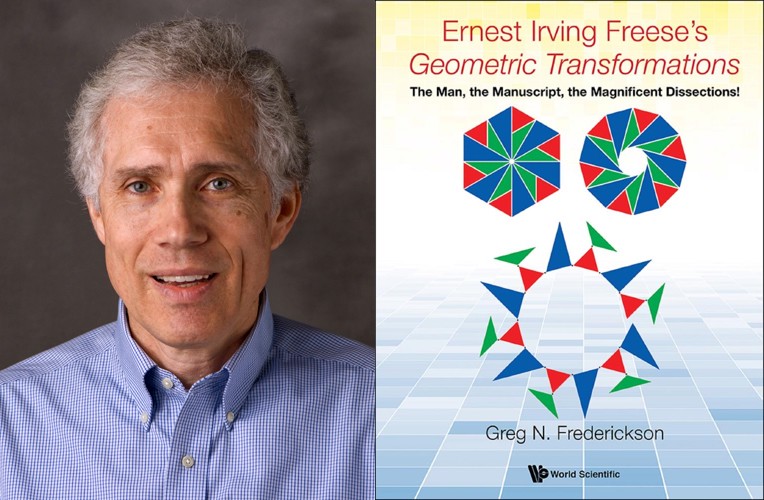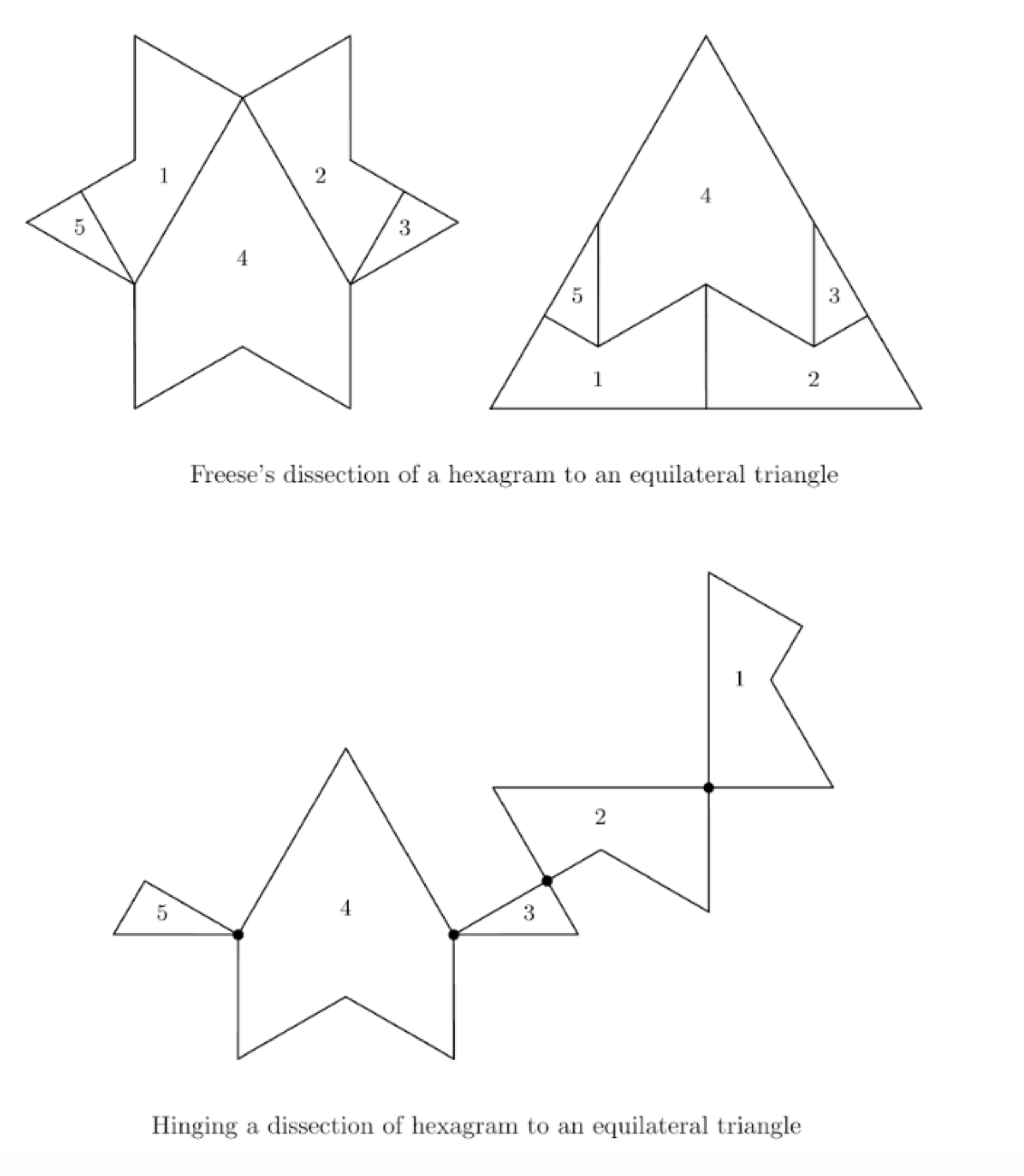Geometry, Math Puzzles, and One Man’s Cross-Country Journey to Retrieve a Lost Manuscript
05-11-2018
Writer(s): Kristyn Childres

Professor Greg Frederickson was on a hunt. He knew that Ernest Irving Freese, an architect from Los Angeles, had written the first book-length treatment on geometric dissection – one of Frederickson’s passions.
There was only one issue. Never having been published, the manuscript was missing, and Freese had been dead for nearly 50 years.
A manuscript recovery mission
In 2003, Frederickson traveled to California with the goal of unearthing the book. He got in touch with Freese’s niece and her husband, who lived in Greater Los Angeles. He told them that he was in search of the missing 200-page manuscript.
Along the way, they visited a home that Freese had designed, built, and lived in. “The home was amazing,” Frederickson recalls. “Freese had constructed the chimney so that the bricks slowly turned as it rose, creating a staircase-like effect. The home attracted attention because of the stylish way he built it.”
Later, they visited Freese’s final home, which his niece still owned. Frederickson recalls that Freese’s belongings were squirreled away in boxes. “His niece had pulled together many records about his life on a pool table in the basement. She spread a cover over the pool table because the documents were grimy from having spent so many years in storage. It was a big mess.”
Among those materials was Freese’s missing manuscript. “If I hadn’t gone to LA when I did, the book would have been lost,” Frederickson said. “By that time, the house was pretty ramshackle. It was eventually torn down and the book could have easily been thrown in the trash.”
Freese was never sure that his manuscript would be published. In a letter to a friend, he wrote despairingly, “Who will publish it? Probably nobody!” When Frederickson came along, he did more than just publish the manuscript. He explained it, created an electronic version, and wrote commentary and history.
The result is Frederickson’s newest book: Ernest Irving Freese's Geometric Transformations: the Man, the Manuscript, the Magnificent Dissections. The book introduces Freese and his creations to math puzzle enthusiasts by way of his manuscript, his adventures, and his dissections.
A dreamlike experience
“It feels like I got to know this person, to a certain degree,” Frederickson says. “When he died, I was just ten years old, so there was never any chance I was going to meet him. When people are gone, you never get to interact with them on a complete level. But he left all these bread crumbs behind. I was chasing down information on things that were way in the past.”
“The experience was almost dreamlike for me,” Frederickson says. “In 1997, in my first book, Dissections Plane and Fancy, I wrote that no one had found this manuscript and I toyed with the idea of someone traveling around Los Angeles, trying to find it. Six years later, that’s exactly what I did.”
What is geometric dissection?
Geometric dissection is the cutting of a geometric figure (like a polygon, star or cross) into pieces that can be rearranged to form a different geometric figure.
“The best dissections are beautiful because they have very few pieces, symmetry, and hingeabilility – you can rotate the pieces, as though on a hinge, in order to form a completely different shape,” Frederickson says.
Below is Freese's unhinged dissection of a hexagram to an equilateral triangle, followed by Frederickson's diagram that shows how to hinge the pieces in Freese's dissection.
